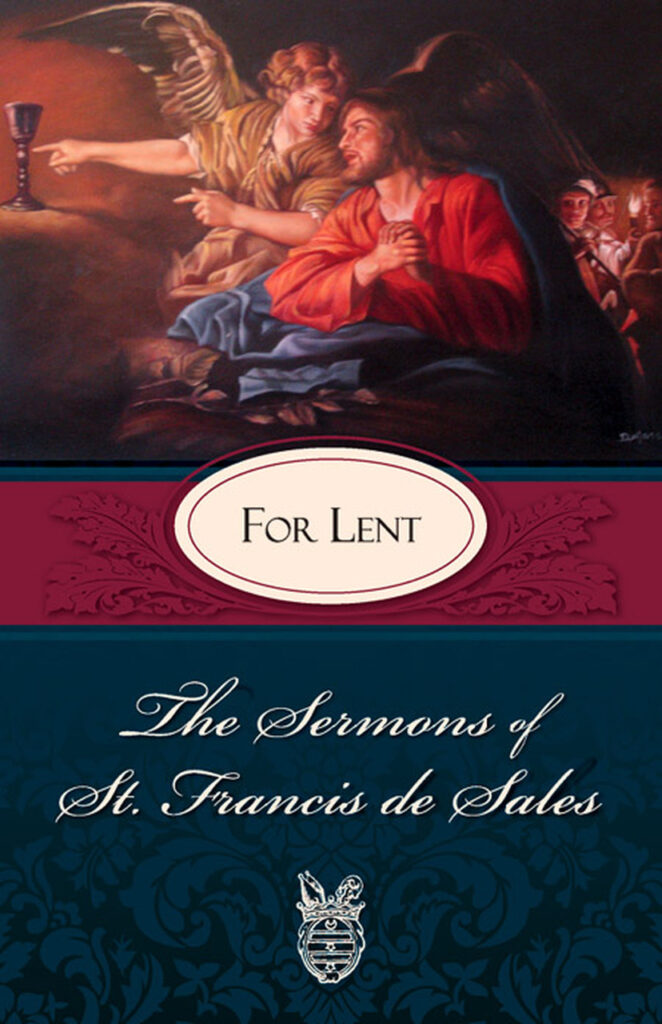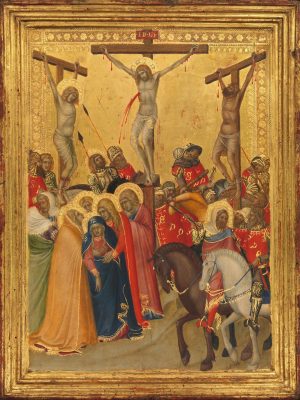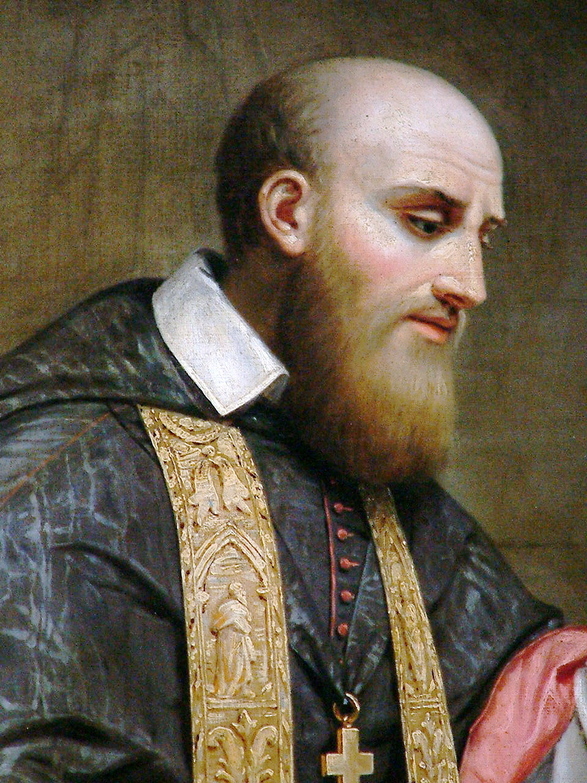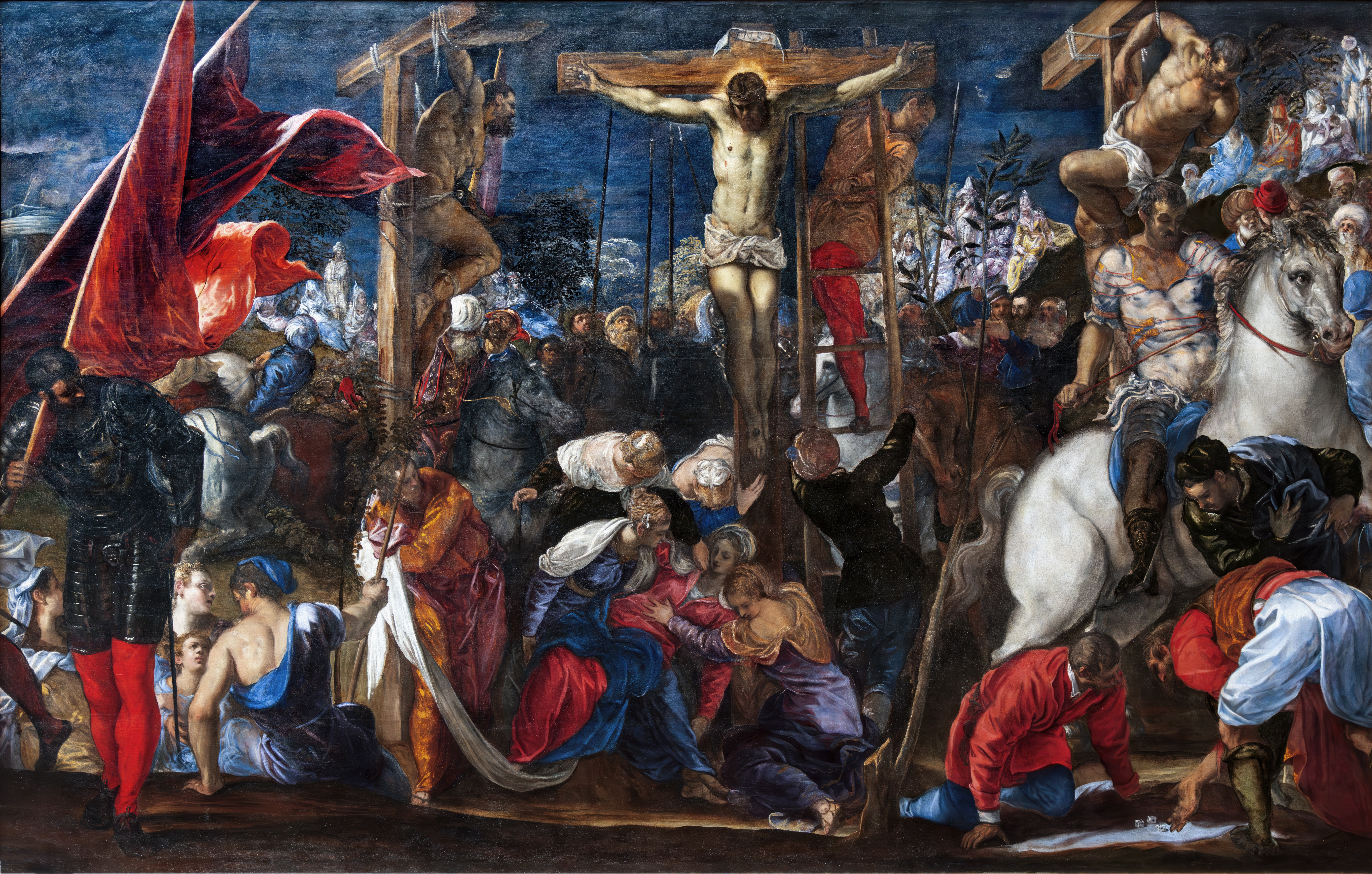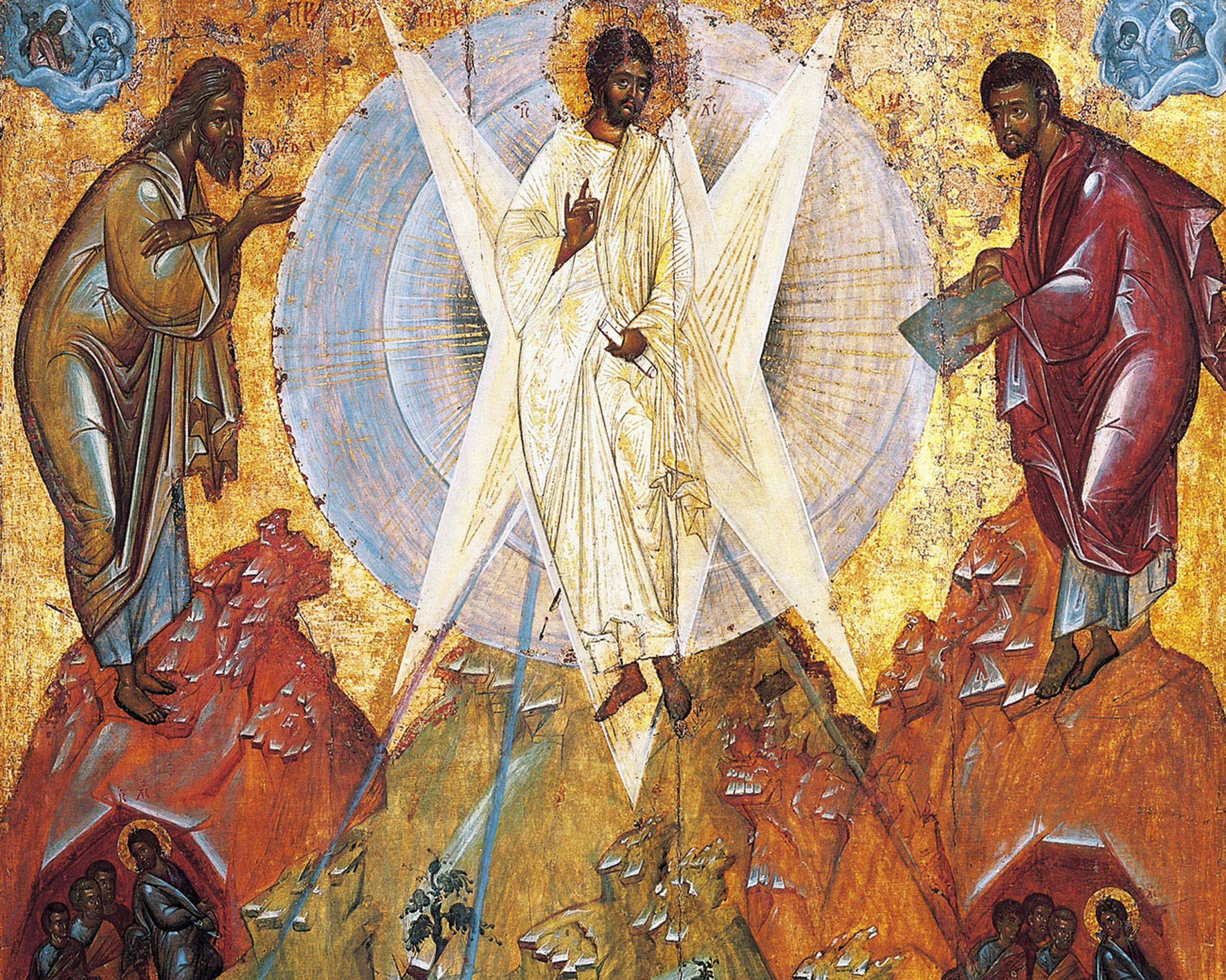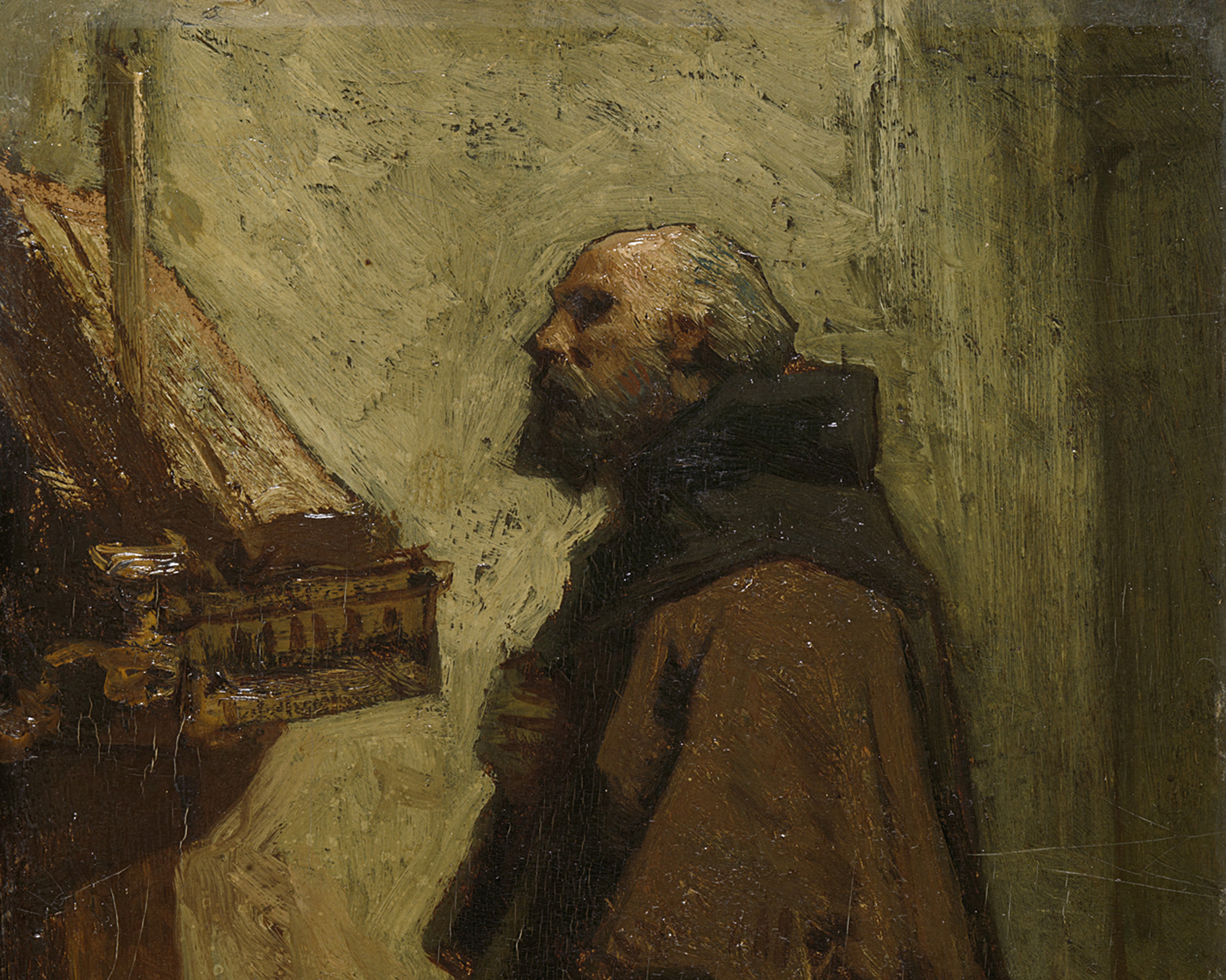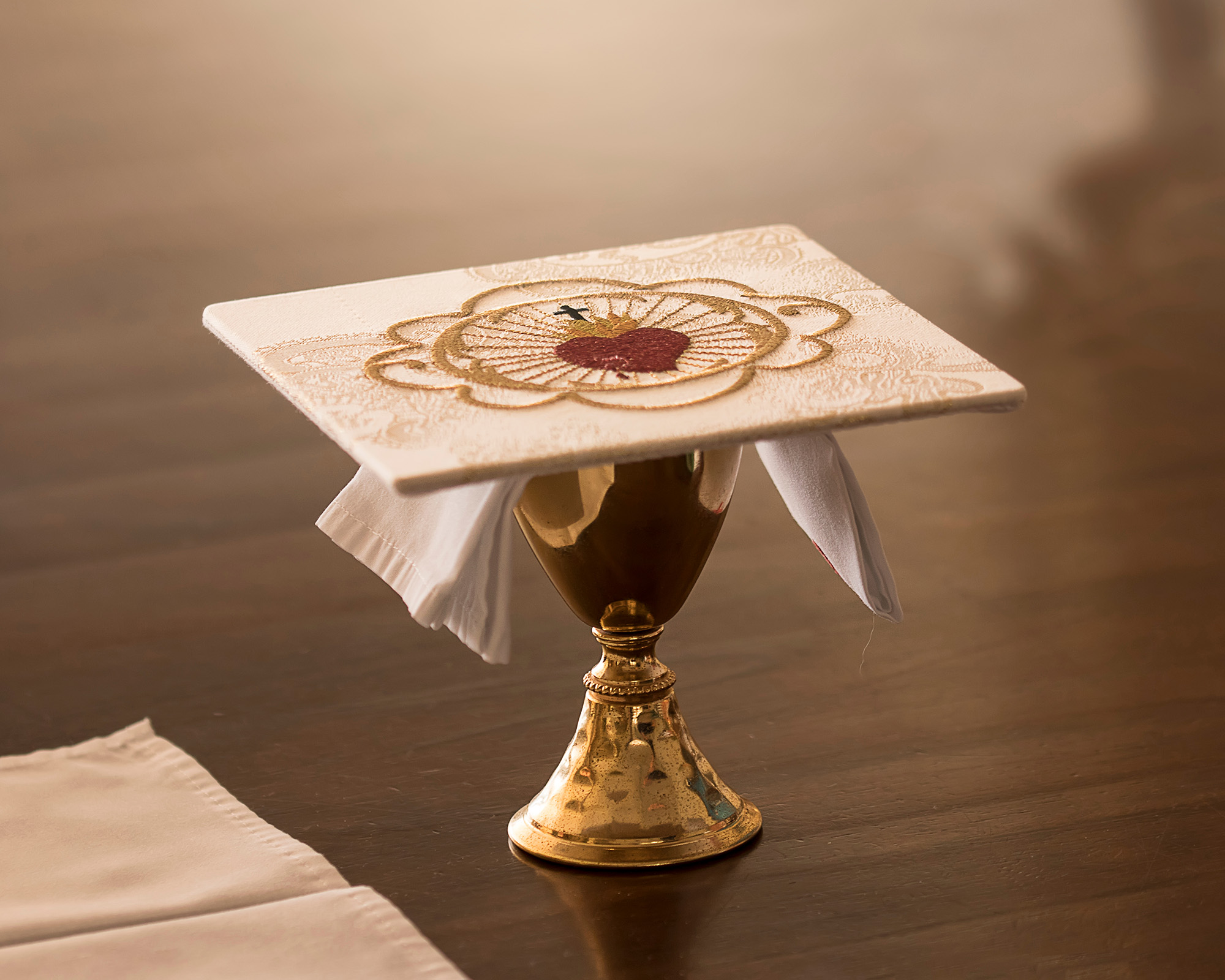Sermon for Good Friday, March 25, 1622, concerning the brass serpent which saved the Israelites, the sinlessness of Christ, the manner in which He redeemed us, the two natures of Christ and our three “natures,” Our Lord as Savior, how our salvation comes from looking upon our Savior, Our Lord’s seven last words, His prayer for forgiveness for those crucifying Him, His pardon of the good thief and of St. Peter, and the bad thief’s and Judas’ damnation; the danger of damnation and how we should both fear and hope, Our Lord’s confiding of Our Lady and St. John to each other, the darkness on Good Friday, Our Lord’s great sorrow over those who would not profit from His Passion, His feeling of abandonment by His Father, His thirst, His obedience in remaining on the Cross and how we should imitate Him, the Cross as the one way of salvation, and Our Lord’s perfect commending of Himself into His Father’s hands and how we should do likewise, making no reservations.
“Jesus Nazarenus, Rex Judeaorum – Jesus the Nazarene, the King of the Jews.” -John 19:19
Since there are only a few hours in which to speak of the Passion by which we have all been redeemed, I will take for my subject only the words of the title that Pilate had inscribed on the Cross: Jesus the Nazarene, the King of the Jews. In this title are implied all the causes of this divine Passion. They can be reduced to two, and these two are signified by the words: Jesus the Nazarene, the King of the Jews. The Latin for this phrase has four words. They do not, however, indicate four causes; His death has only two causes, as we shall see.
“Jesus” means “Saviour!” [Matt. 1:21]. Now, He died because He was Saviour: to save us it was necessary for Him to die. He was a Nazarene. This word means “flourishing,” that is, holy and innocent, without stain or blight of sin, but flourishing with all sorts of virtues and perfections.
“King of the Jews” means that He is both Saviour and King. “Jews” signifies confessing: He is King, then, but only of the Jews, that is, only of those who confess Him [cf. Rom. 10:9-10]; and to redeem those who confess Him, He died. Yes, He truly died, and death on a Cross. [Phil. 2:8].
Here, then, are the causes of the death of Jesus Christ: the first is that he was Saviour, holy, and King; the second, that He wished to redeem those who acknowledge Him, which is what the word “Jews” means that Pilate had written on the standard of the Cross.
The Old Testament taught us this truth by many figures and images, particularly that of the brass serpent that Moses erected on the pole to protect the Israelites from serpent bites. You know the whole story, I am sure, and how it happened. [Num. 21:6-9]. When God withdrew His people from slavery in Egypt to lead them to the Promised Land under the command of that great captain, Moses, a strange misfortune occurred. Small serpents came out from the earth and overran the desert where the poor Israelites were. Their bite, though apparently not very painful, was certainly very dangerous. It was so venomous that all those bitten would surely have died if, in His goodness and infinite Providence, God had not provided a remedy.
Moved by the sight of this pitiable misfortune, Moses spoke to God and asked for some remedy against it. The Lord commanded him to make a brass serpent and to place it on a tall pole, promising that those bitten by the small serpents would be cured by gazing upon it. Moses promptly did this, enjoining those bitten to cast their eyes on the brass serpent mounted on the pole. Those who did so were immediately cured. Those unwilling to gaze upon it died, for there was no other means of escaping death than that which was ordained by God Himself. “Oh! How good was the God of Israel” [Ps. 72 (73):1], said a great saint, “to provide Moses with such a remedy for his people’s cure!”
I pray you to notice how well this incident symbolizes the cause or motivation of Our Lord’s death. These children of Israel, withdrawn from slavery to Egypt, stand for the entire human race, whom God had preserved from sin and placed in the promised land of the earthly paradise, where He had established us in original justice. But in paradise a terrible thing took place: small serpents arose, and stung us in the persons of our first parents, Adam and Eve. The companions and accomplices of him who had stung our first parents so overran the desert, which is this world, that we would all surely have been bitten. I say all, because no creature can think himself exempt from such a bite, that is, from original and actual sin: Original Sin in the person of our first parents, and actual sin in our own person. If anyone says that he has been preserved from it he is certainly a liar. Indeed, as the great Apostle writes, if anyone thinks he is without sin, do not believe him, for iniquity reigns in him. [Rom. 3:23; 5:12, 18; 1 Jn. 1:8-10].
I know of course that the sacred Virgin, Our Lady, was never bitten by this infernal serpent, since it is quite clear and manifest that she was without sin, either original or actual. She was privileged and preferred above all other creatures, with so great and unique a privilege that no one, whatsoever, has ever received grace comparable to this holy Lady and glorious Mistress. No one has ever dared, and no one will ever dare to claim or to aspire to so unique and special a privilege. This grace was due only to her who was destined from all eternity to be the Mother of God.
This exception does not in any way lessen our assertion that all have been bitten by the serpent. Now this bite was so venomous that we would all have died an eternal death if God in His infinite goodness had not provided against such a great misfortune. He did this admirably, moved to do so by no other motive than His pure and immense mercy. Therefore He ordained that His Son should die and Himself be that serpent placed on the pole of the Cross to be gazed upon by all who are bitten and sullied by sin. [John 3:14-16]. Writing to the Galatians (and I never read these words without trembling and being seized with terror), the great Apostle said that the Son of God, who knew no sin or iniquity, died for our redemption. [Gal. 3:13; cf. 2 Cor. 5:21; 1 Peter 3:18].
It is certainly true that He was sinless; moreover, He could not sin, for He was equal to the Father in everything. His was the same nature, substance and power. It was therefore utterly impossible for Him to sin. Although He is all-powerful, and can consequently do all He pleases, yet He cannot sin; He is nevertheless still all-powerful, for to be able to sin is not power, but powerlessness. He died for our sins without Himself having committed any iniquity. He was, as the notice on the Cross says, a Nazarene, one flourishing in all holiness. Nor was He a serpent, actually or figuratively, except to cure us from the sins of the true serpent. Because of His great love for us He burdened Himself with our sins, with our miseries and weaknesses [Is. 53:4]; He clothed Himself with our plumage and shell. In short, He became this serpent placed on the wood of the Cross to preserve from death and give life to all who would gaze upon Him. From Heaven He brought us Redemption, and, not only that, He Himself was our Redemption. [1 Cor. 1:30]. “Oh! How good is the God of Israel” [Psalm 72 973):1] to have provided humankind with such a precious Redemption! [Psalm 129 (130):7-8]. Without this God-given remedy, all, without any exception whatsoever, would have died, since all had sinned.
But could God not have provided the world with a remedy other than that of His Son’s death? Certainly, He could have done so, and by a thousand other means. Could He not have pardoned human nature with absolute power and pure mercy, not invoking justice or the intervention of any creature? Doubtless He could, and who would have dared to question or criticize Him? No one, for He is Sovereign Master and can do all He wills. Besides, if He had wanted some creature to undertake our redemption, would He not have created one of such excellence and dignity that, by its deeds or sufferings, it could have satisfied for all our sins? Assuredly, and He could have redeemed us in a thousand other ways than that of His Son’s death. But He did not will to do so, for what may have been sufficient for our salvation was not sufficient for His love; and to show us how much He loved us, this divine Son died the cruelest and most ignominious of deaths, that of the Cross.
This article is taken from part of a chapter in The Sermons of St. Francis de Sales: For Lent by St. Francis de Sales which is available from TAN Books.
